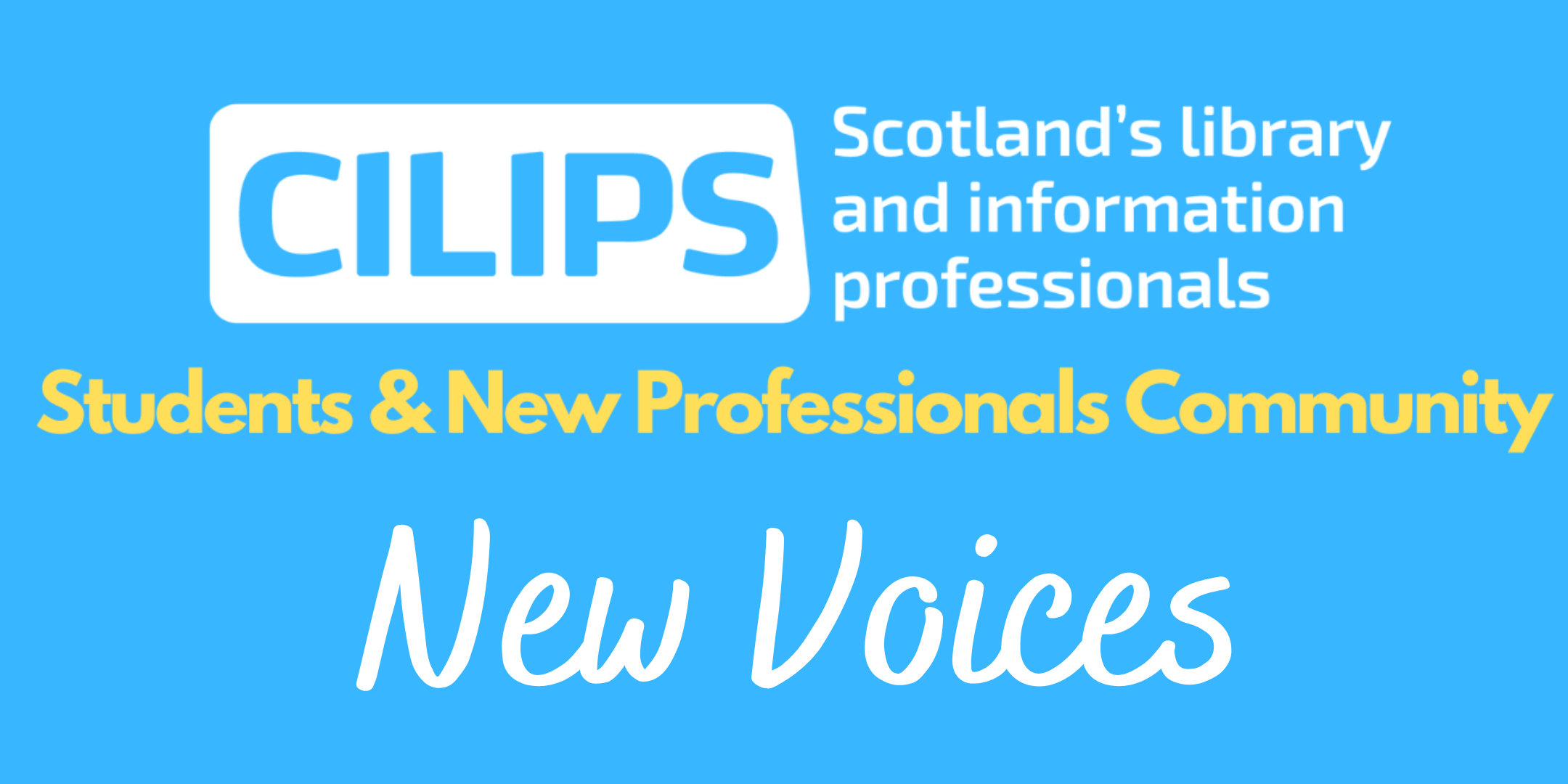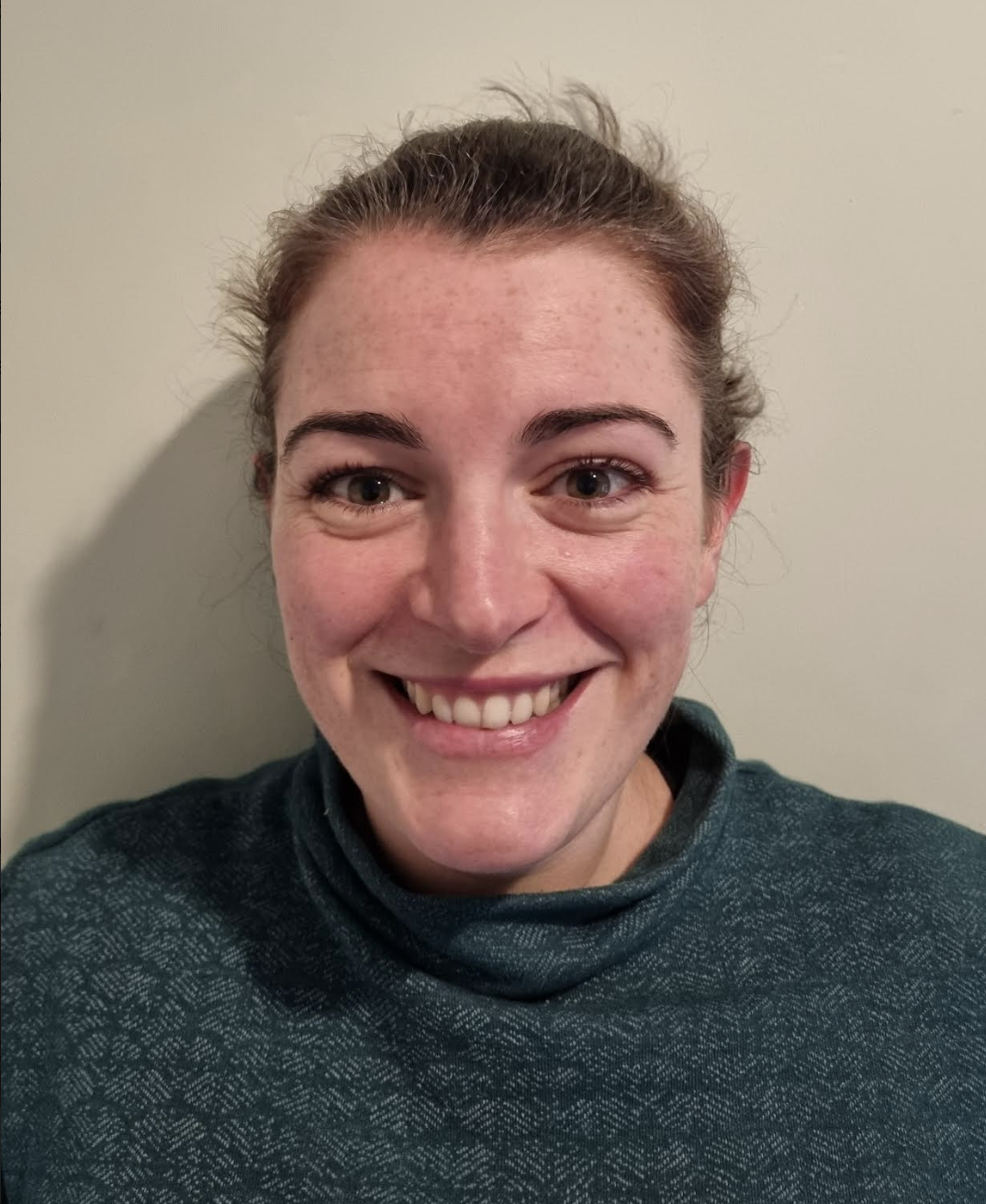New Voices RGU Student Series 2024 – Iona Bishop
Category: Blog, New Voices, RGU Student Series 2024

In the 2024 Student Series for the New Voices blog, CILIPS Students & New Professionals Community will be sharing the views of Robert Gordon University students from the MSc in Information and Library Studies.
With special thanks to Dr Konstantina Martzoukou, Teaching Excellence Fellow and Associate Professor, for organising these thought-provoking contributions.
Today’s blog contribution comes from Iona Bishop. Iona is a current student and after having spent many hours in the local library with her children decided to retrain in this field.
What is the role of information professionals in supporting information literacy skills development for using generative artificial intelligence tools?
Information literacy provides an individual with the skills to find, assess and evaluate information (Chartered Institute of Library and Information Professionals, 2018). MacDonald (2018) states that information literacy skills have never been more important. With the rise of the prominence of artificial intelligence (AI), MacDonalds statement is notably pertinent. In a technologically advancing world it is imperative that people can source and understand appropriate information and recognise credible sources. Information literacy skills are particularly important within the context of healthcare, where erroneous information can prove fatal. Can information professionals help healthcare providers utilise this tool to improve their practice?
AI has the potential to provide many benefits to the healthcare setting. Increased access to information can benefit both healthcare providers and patients (Varghese and Chapiro, 2023). It can provide clinicians with diagnostic support and treatment suggestions (Duffnorc and Gerke, 2023). Doctors who use generative artificial intelligence effectively have the potential to outperform their colleagues with less adept information literacy skills (Zhang and Kamel Boulos, 2023).

Figure 1 : created by generative artificial intelligence Gencraft, when asked for ‘A
robot dressed in hospital scrubs’.
However, use of AI also has potential disadvantages, particularly when it is used by individuals with less developed information literacy skills. There is an issue in AI in which inaccurate information is presented as factual, an event called artificial hallucination (Varghese and Chapiro, 2023). This error is at the forefront of discussions regarding the challenges in using AI in a healthcare setting (Kuzlu et al, 2023; Zhang and Kamel Boulos, 2023). It is remiss to assume an information professional would recognise incorrect medical information in comparison to a healthcare professional who has studied their profession for years. However, the information professional can help educate to minimise this misinformation. Users can be educated in learning to identify incorrect information and shown how to cross-reference information they do find to assess its credibility. Seah (2023) also appreciates the value of AI in its ability to provide more information to more people while noting the importance of information professionals providing users with the necessary skills to find and critique information using AI.
It is easy to fall into the trap of assuming healthcare providers have good information literacy skills due to the length of time they study at university. However, Younger (2010) conducted a study which notes that some of the healthcare professionals questioned felt their researching skills could be developed further to allow more effective practices. It had not occurred to many of the participants in this study to utilise the skills of healthcare professionals to help develop these skills.
While information professionals should be present to educate healthcare professionals, they should also promote the services they provide. Walker (2021) states informational professionals “can serve as lighthouses … through the information deluge” (p. 135). I believe information professionals can provide an important service in helping develop information literacy skills. While I do not wish to minimise the value of developing information literacy skills, I do question if information professionals should be the sole profession to take on the mantel. Perhaps a multi-professional approach, including education and support from other roles would be most beneficial. Artificial intelligence, when channelled correctly, has the potential to improve medical practice. Information professionals should promote their services and educate healthcare professionals to use AI efficiently. This will give them the knowledge on how to search and assess information. While it may be a step too far to suggest information professionals can save lives, I think it is safe to say we can certainly help.
References:
CHARTERED INSTITUTE OF LIBRARY AND INFORMATION PROFESSIONALS., 2018. Information Literacy Definition [online]. Available from: https://www.cilip.org.uk/news/421972/What-is-information-literacy.htm [Accessed 28th August 2023].
DUFFOURC, M. and GERKE, S., 2023. Generative AI in healthcare and liability risks for physicians and safety concerns for patients. Journal of the American Medical Association, 330(4), pp. 313-314.
GENCRAFT, 2023. A robot in hospital scrubs. Gencraft response to Iona Bishop. Available from: https://gencraft.com/generate [Accessed 15 November 2023].
KUZLU, M. et al. 2023. The rise of generative artificial intelligence in healthcare. 12th Medeterranean conference on embedded computing. Available from: https://ieeexplore.ieee.org/abstract/document/10155107 [Accessed 19th October 2023].
MACDONALD, G., 2018. What is information literacy? 10 October 2018. Available from: https://www.cilip.org.uk/news/421972/What-is-information-literacy.htm [Accessed 07 October 2023].
SEAH, S., 2023. Responsible practices for responsible libraries: The role of libraries in a world of generative AI. Institutional Knowledge at Singapore Management University. Available from: https://ink.library.smu.edu.sg/cgi/viewcontent.cgi?article=1211&context=library_research [Accessed 09 October 2023].
UNESCO., 2023. Information for all programme [online]. Available from https://www.unesco.org/en/ifap/programme [accessed 14th October 2023].
VARGHESE, J. and CHAPIRO, J. 2023. Chat GPT: the transformative influence of generative AI on science and healthcare. Available from: https://www.journal-of-hepatology.eu/article/S0168-8278(23)05039-0/fulltext [Accessed on 15th October 2023].
WALKER, P., 2021. The library’s role in countering infodemics. Journal of the Medical Library Association, 109(1), pp. 133-136.
YOUNGER, P., 2010. Internet- based information-seeking behaviours amongst doctors and nurses: a short review of the literature. Health Information and Libraries Journal, 27(1), pp. 2-10.
ZHANG, P., and KAMEL BOULOS, M, N., 2023. Generative AI in medicine and healthcare: promises, opportunities and challenges. Available from: https://www.mdpi.com/1999-5903/15/9/286 [Accessed 17th October 2023].